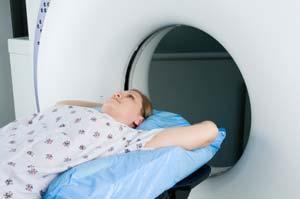 Ten years ago, after long and bitter debate, the U.S. Food and Drug Administration approved use of the abortion pill by American women. It is hailed as safe and effective, but new turmoil may lie ahead as the pill's proponents consider using telemedicine to make it more available.
Ten years ago, after long and bitter debate, the U.S. Food and Drug Administration approved use of the abortion pill by American women. It is hailed as safe and effective, but new turmoil may lie ahead as the pill's proponents consider using telemedicine to make it more available.
Already, a pioneering telemedicine program in Iowa has provided the pill to about 1,900 women - with a doctor able to consult with a faraway patient in a video teleconference, then unlock a container by remote control to release the pill. To the alarm of anti-abortion activists, abortion providers in other states are pondering whether similar programs would enable them to serve more women, especially in rural areas.
After 10 years in US, abortion pill still divisive
Diesel Dangers: Mining Companies Get First Look at Government Cancer Study
 A long-delayed government epidemiological study of possible ties between diesel exhaust and lung cancer in miners may finally be published this fall -- but only after a mining industry group, represented by the Washington lobbying powerhouse Patton Boggs, finishes a pre-publication review of the study's drafts.
A long-delayed government epidemiological study of possible ties between diesel exhaust and lung cancer in miners may finally be published this fall -- but only after a mining industry group, represented by the Washington lobbying powerhouse Patton Boggs, finishes a pre-publication review of the study's drafts.
Eighteen years in the making and eagerly awaited by public health officials, the cancer study evaluates more than 12,000 current and former workers from eight mines that produce commodities other than coal. Its goal is to determine whether ultrafine diesel particulate matter -- a component of exhaust from diesel-powered machinery -- poses a serious hazard to miners in confined spaces.
$93,000 cancer drug: How much is a life worth?
 Cancer patients, brace yourselves. Many new drug treatments cost nearly $100,000 a year, sparking fresh debate about how much a few months more of life is worth.
Cancer patients, brace yourselves. Many new drug treatments cost nearly $100,000 a year, sparking fresh debate about how much a few months more of life is worth.
For the last decade, new cancer-fighting drugs have been topping $5,000 a month. Only a few of these keep cancer in remission so long that they are, in effect, cures. For most people, the drugs may buy a few months or years. Insurers usually pay if Medicare pays. But some people have lifetime caps and more people are uninsured because of job layoffs in the recession. The nation's new health care law eliminates these lifetime limits for plans that were issued or renewed on Sept. 23 or later.
Nearly 30,000 Americans Get Cancer From This One Procedure EVERY Year: Will You?
 CT scans yield higher-resolution images than regular medical X-rays. Unfortunately, they also expose the patient to hundreds and sometimes thousands of times the amount of radiation.
CT scans yield higher-resolution images than regular medical X-rays. Unfortunately, they also expose the patient to hundreds and sometimes thousands of times the amount of radiation.
The routine use of CT scans has vastly increased. In 1980, there were roughly 3 million CT scans performed. By 2007, that number had increased to 70 million. CT scans are now being promoted to healthy people -- even whole body CT scans.
This "Miracle Drug" Could Nearly Double Your Risk of Cancer
 Oral bisphosphonate osteoporosis drugs, which include such Actonel, Boniva, and Fosamax, could be associated with an approximately twofold increased risk of esophageal cancer.
Oral bisphosphonate osteoporosis drugs, which include such Actonel, Boniva, and Fosamax, could be associated with an approximately twofold increased risk of esophageal cancer.
All in all, osteoporosis is a major health risk for nearly 30 million Americans, in large part because many are clueless about how to prevent it.
FDA to limit access to diabetes drug Avandia
 The Food and Drug Administration said Thursday that it will sharply limit access to the anti- diabetes drug Avandia because of concerns about an increased cardiovascular risk associated with the drug.
The Food and Drug Administration said Thursday that it will sharply limit access to the anti- diabetes drug Avandia because of concerns about an increased cardiovascular risk associated with the drug.
Patients who are now taking the drug will have to sign an informed consent statement acknowledging that they understand all the risks before they will be allowed to continue refilling prescriptions.
New healthcare law will expand hospice option
 About this time last year, voters and politicians were consumed by the rumor — fanned by healthcare overhaul opponents — that the legislation would establish "death panels" of government bureaucrats who could "pull the plug on Grandma" if she needed costly care.
About this time last year, voters and politicians were consumed by the rumor — fanned by healthcare overhaul opponents — that the legislation would establish "death panels" of government bureaucrats who could "pull the plug on Grandma" if she needed costly care.
The outcry led legislators to scrap a provision of the House bill that would have paid for voluntary consultations between physicians and Medicare beneficiaries about end-of-life care: living wills, hospice benefits and the like.
More Articles...
Page 139 of 233

 Health Glance
Health Glance






























